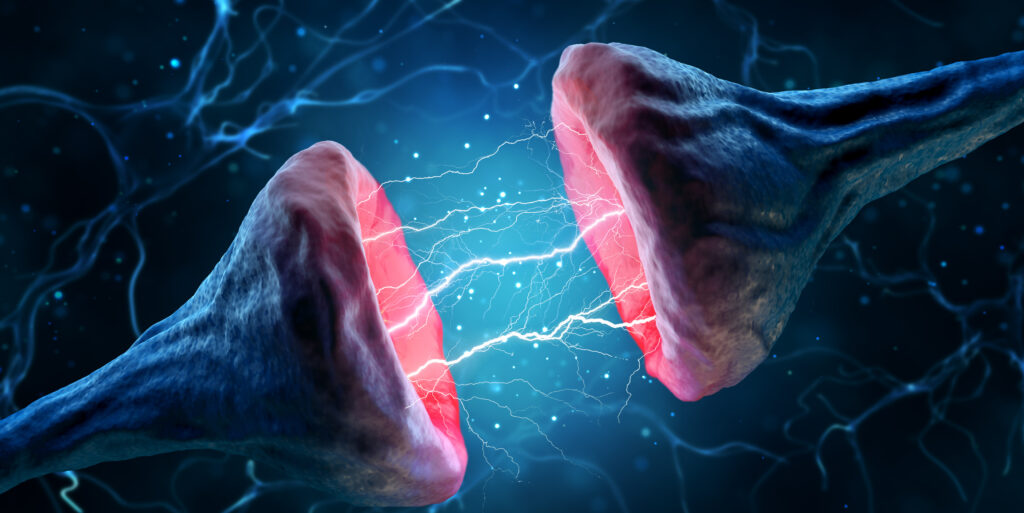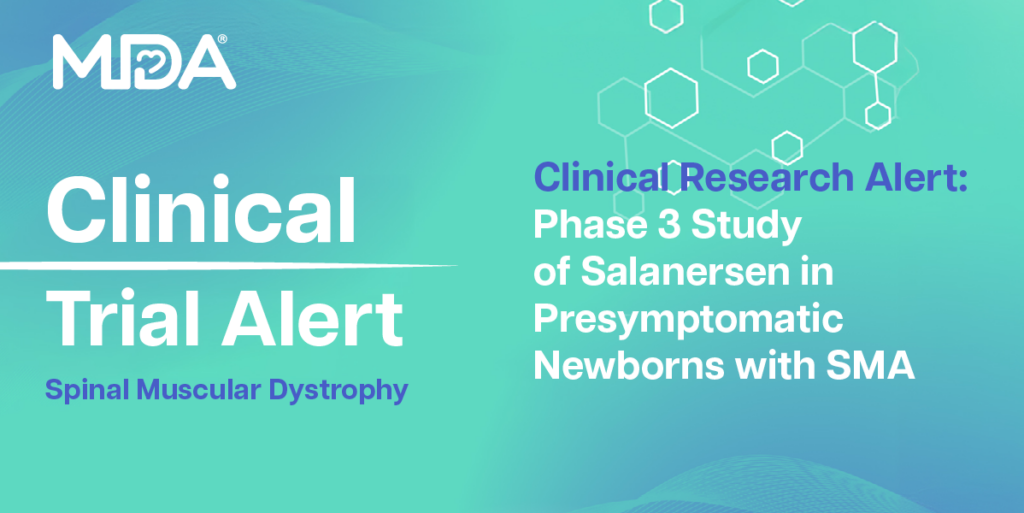
New MDA Educational Programs for Clinicians Offer a Detailed View on Selected Topics in Neuromuscular Disease
By MDA Staff | Friday, December 13, 2019
MDA’s Medical Education department was established in response to the growing need for clinician education in neuromuscular disease (NMD). We are pleased to present four webinars that cover newborn screening (NBS) and early intervention, genetic testing, and best practices in multidisciplinary care. Our Medical Education department, together with key opinion leaders in the NMD field, created detailed and well-referenced educational content to serve clinicians and ultimately improve patient care.
Newborn Screening: Development, Implementation, and the Road Ahead
Historically, NMDs did not meet the criteria to be included on the federal Recommended Uniform Screening Panel (RUSP) because no effective therapies were available. Currently, two NMDs, Pompe and SMA, have been added to the RUSP. As therapies for more NMDs are approved, those diseases will be added to screening panels. Clinicians will need to be familiar with the newborn screening system and how to follow up with infant patients identified in the screen. Michele Caggana, ScD, FACMG, from the Wadsworth Center, New York State Department of Health, and David Kronn, MD, from the New York Medical College and the Westchester Medical Center created a two-part webinar that explains the rationale behind newborn screening, the selection criteria for the conditions to be included in RUSP, and the associated follow-up procedure.
For more details, visit https://webinars.on24.com/MDA/Part1NBS and https://webinars.on24.com/MDA/Part2NBS.
This program is supported in part by an educational grant from Sanofi Genzyme.
SMA Newborn Screening and Early Intervention
Spinal muscular atrophy (SMA) is a genetic disorder marked by loss of motor neurons leading to muscle weakness. In the past three years, two therapies have been approved to treat the disease and change its progression. However, loss of motor neurons is not reversible, and the treatments are most effective when administered early — ideally before symptom onset. Pre-symptomatic patients can be identified through newborn screening programs, which requires coordination between neuromuscular specialists, pediatricians, and state laboratories. David C. Dredge, MD, created a webinar about the benefits of early diagnosis, with practical advice on the management of care for SMA cases identified through newborn screening programs and a treatment algorithm for patients with SMA. This webinar is available for CME credit.
For more details, visit https://webinars.on24.com/MDA/SMA_Early_Intervention.
This activity has been planned and implemented in accordance with the accreditation requirements and policies of the Accreditation Council for Continuing Medical Education (ACCME) through the joint providership of PeerPoint Medical Education Institute, LLC and MDA. The PeerPoint Medical Education Institute, LLC is accredited by the ACCME to provide continuing medical education for physicians.
This program is supported in part by an educational grant from Avexis.
Best Practices in ALS Multidisciplinary Care
MDA and the team from the Emory ALS Center created a roundtable discussion about the essential elements of multidisciplinary care, which is recommended to increase quality of life and longevity.
During this webinar, the panelists — Jonathan Glass, MD; Christina Nicole Fournier, MD; Holly Doe, RN; and Jane Bordeau, RN — discussed specific roles and disciplines that allow excellent care for ALS patients. The panelists dove into the logistics and operations of multidisciplinary care management, such as how to ensure quality and efficiency, tools to measure disease progression, insurance coverage, and billing. Jane talked about the importance of incorporating clinical trials into a clinic visit and encouraging patients to deposit samples into biobanks. Dr. Fournier, who recently established an ALS clinic in the Atlanta Veterans Affairs Medical Center, shared her learnings on the essential first steps.
For more details, visit https://webinars.on24.com/MDA/ALSMultidisciplinaryCare.
This program is supported in part by an educational grant from Mitsubishi Tanabe Pharma America.
Genetic Testing for Neuromuscular Disorders
A genetic diagnosis can inform prognosis and treatment decisions and determine patients’ eligibility for new and emerging therapies. However, selecting the right genetic test and incorporating genetic information to reach a diagnosis and formulate a treatment plan can be challenging for many clinicians. Laurie Gutmann, MD, from the University of Iowa and Shawna Feely, MS, CGC, from Iowa’s Carver College of Medicine created a webinar about the genetic diagnosis procedure in patients with NMD. During this webinar, Dr. Gutmann and Shawna discuss the relevance and practical considerations of genetic testing, as well as the integration of genetic testing into a treatment plan.
For more details, visit https://webinars.on24.com/MDA/Genetic_Testing.
This program is supported in part by an educational grant from Sanofi Genzyme.
TAGS: Community Education, Genetic Testing, Newborn Screening
TYPE: Blog Post
Disclaimer: No content on this site should ever be used as a substitute for direct medical advice from your doctor or other qualified clinician.




